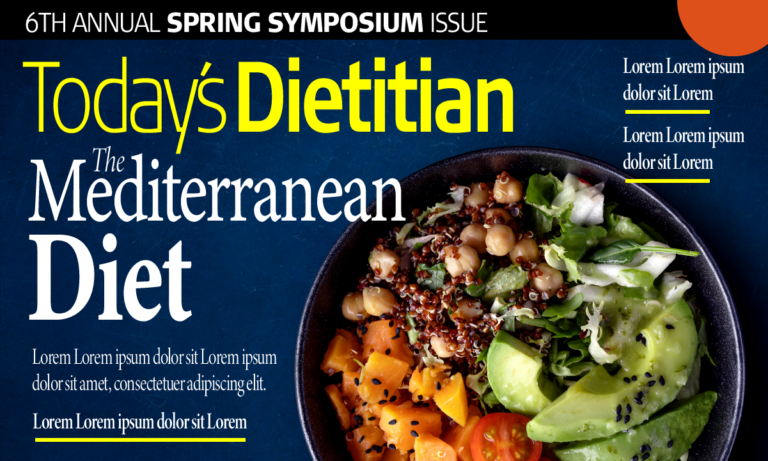¿What is a nutrigenetic study for?
The nutrigenetics is defined as the science that studies the effect that our genes have on the response to the various components of the diet. Therefore, a nutrigenetic study will allow us to adapt the food we eat to our needs.
The fundamental assumptions on which the science of nutrigenetics is based are as follows:
- The effects of nutrients on health depend on inherited genetic variants. that alter their absorption and metabolism and, therefore, the activity of biochemical reactions.
- Better health outcomes can be achieved if nutritional requirements are customized for each individual, taking into account their genetic characteristics, both inherited and acquired, life stage, dietary preferences and health status.1
This science should not be confused with nutrigenomics, which analyzes the direct influence of nutrients on gene expression and health. You can learn more about the difference between nutrigenetics and nutrigenomics.
Eating problems and their associated pathologies at a global level
1. Intensive animal husbandry, crop manipulation and food processing have altered the qualitative and quantitative balance of nutrients in the foods consumed by Western society. It is believed that this change, to which human physiology and biochemistry are not currently adapted, is the responsible for chronic diseases proliferating in Western industrialized countries.
2. On the other hand, in most developing countries, agricultural production and food processing practices, as well as Western dietary habits and lifestyles, are promoted without considering the health implications. As a result, there is a upward trend in the incidence of obesity, the type 2 diabetes, the hypertension, the cardiovascular diseases and the dental caries.
3. In recent decades, a nutritional transition has resulted in a global shift away from the consumption of minimally processed foods and towards ultra-processed alternatives, away from home-prepared dishes and towards ready-to-eat meals and snacks. The same period has seen a rapid increase in the global prevalence of obesity in children and adults.
4. The importance of nutrigenetic testing
In a world characterized by an overwhelming increase in the prevalence of obesity, its associated metabolic disorders and cardiovascular disease, the personalized nutrition represents a promising approach for both the prevention and treatment of these diseases. However, in order to assess the nutritional needs of each individual, it is highly recommended to carry out a nutrigenetic study beforehand.
From the point of view of nutrigenetics, there are many factors that should be taken into account when designing personalized and objective nutritional solutions for individuals or population subgroups. Likewise, a common effort between nutritionists, scientists, clinicians and health professionals is necessary to establish a comprehensive framework that allows the application of these new findings at the population level.
5. Nutrigenetics and its role in obesity
The increasing search for individualization and optimization of consumer goods, as well as the willingness to pay a higher price, suggest that the market could be willing to accept personalized nutrition to prevent, managing or treating specific diseases.
Obesity is one of the many diseases with great potential to improve its prevention using nutritional tests. It is estimated that between 40% and 70% of the variation in susceptibility to obesity observed in the population is due to inter-individual genetic differences.
6. Arkadians developed a personalized calorie control diet, using 24 variants in 19 genes involved in metabolism for a weight reduction program. These authors6 compared weight loss and maintenance in 50 individuals who received dietary and exercise advice tailored to their genotype to optimize nutrient intake during weight loss and in 43 control individuals who only received advice generic diet and exercise. The results of the study showed that people who received personalized dietary advice not only obtained better results during the weight loss period, but also in the stabilization of weight during the following year.
The gen FTO is an example of a gene in which certain polymorphisms have been linked to a greater predisposition to develop obesity. This FTO-obesity association has been observed in populations of diverse ancestry and over the course of life, with the greatest effect observed in young adulthood.
7. Nutrigenetics in cancer control and treatment
Many lifestyle factors affect the development of cancer through oxidative stress which originates as a result of damage induced by reactive oxygen and nitrogen species (RONS), and which generate potentially mutagenic DNA damage.8 Cellular oxidative stress is a process that occurs in our cells due to an excess of free radicals and a lack of antioxidants to counteract them. The increase of these oxygen and nitrogen free radicals in our body results in our cells becoming oxidized, affecting their functions and damaging them.
An example of an everyday habit with a powerful capacity prooxidant is the smoking. Inhaled tobacco smoke is considered a potent exogenous prooxidant, as high concentrations of RONS are present in both their tar and gas phases. The direct increase in oxidative burden from inhaled tobacco smoke can be further increased through secondary oxidative stress due to inflammation. However, there are nutrients with high antioxidant power that have been shown to play a major role in cancer prevention. These include vitamin C, vitamin E and vitamin B2.
8. In this context, nutrigenetic testing is an element that can help in cancer prevention. An example of this can be observed in people who have a certain variant in the SLC23A1 gene. A study carried out by Timpson et al9 showed that people with this variant had about lower circulating levels of vitamin CThe risk of developing cancer and other complex chronic diseases, such as arteriosclerosis or type 2 diabetes, is higher.
Nutrigenetics in the prevention and control of cardiovascular disease
Over the past century, research has established that lifestyle, including diet, greatly affects the risk of cardiovascular disease (CVD). For this reason, dietary recommendations have been the focus of public health campaigns aimed at reducing CVD risk. Despite this effort, the expected reduction in CVD mortality does not occur consistently, and this failure has been attributed, at least in part, to the individual variability in the response to dietary recommendations and to the different geneticsor possibly to the bidirectional interactions between both factors.
10. The alteration of lipid metabolism and inflammationboth of which are strongly associated with dietary patterns, are key factors in the onset of atherosclerosis. In fact, many of the identified genetic variants associated with CVD are directly or indirectly involved in the regulation of these two central pathways.
Particularly relevant, both in terms of lipid profile regulation and reduction of inflammation, is the intake of polyunsaturated fatty acids or PUFA, such as omega-6 and omega-3. Intake of these PUFA has been associated with decreased risk of CVD. In addition, it has been extensively demonstrated that PUFAs, such as omega-6 and omega-3 fatty acids, are associated with decreased risk of CVD. omega-3 exercise cardioprotective effects by reducing triglyceride levels.10
An important example of a genetic variant associated with reduced fatty acid processing, and thus a greater predisposition to the development of CVD, is in the FADS gene. Numerous large-scale studies have shown that certain polymorphisms of the FADS gene cause carriers to have lower levels of omega-6 and omega-3.
11. Future of nutrigenetics and implications for nutritional recommendations and dietary practice.
The role that this science plays in investigating the effects of nutrition on health is becoming increasingly evident, as is the importance of conducting nutrigenetic studies. It is not only naïve, but also probably dangerous, to assume that all individuals will respond identically to the foods they consume.
The development of a personalized approach to nutrition for disease prevention and management will require a much more complete understanding of nutrient-gene interactions and their impact on phenotype in order to identify, evaluate and prioritize appropriately targeted dietary intervention strategies.
While the challenges associated with unraveling the nutrigenetics-disease interrelationship will not be easy, the implications for public health are enormous.
12. Gen-T and its nutrigenetics study
At Gen-T, thanks to our tnutritional genetics and your MYDiET test results report your genetic predisposition to correctly metabolize various dietary components, to have higher or lower levels of different nutrients, to respond positively or negatively to certain diets, and your sensitivity to certain flavors.
Bibliography
- Fenech, M. et al. Nutrigenetics and Nutrigenomics: Viewpoints on the Current Status and Applications in Nutrition Research and Practice. Lifestyle Genomics 4, 69–89 (2011).
- de Araújo, T. P. et al. Ultra-Processed Food Availability and Noncommunicable Diseases: A Systematic Review. Int. J. Environ. Res. Public. Health 18, 7382 (2021).
- Popkin, B. M., Adair, L. S. & Ng, S. W. Global nutrition transition and the pandemic of obesity in developing countries. Nutr. Rev. 70, 3–21 (2012).
- Dicken, S. J. & Batterham, R. L. The Role of Diet Quality in Mediating the Association between Ultra-Processed Food Intake, Obesity and Health-Related Outcomes: A Review of Prospective Cohort Studies. Nutrients 14, 23 (2021).
- de Toro-Martín, J., Arsenault, B., Després, J.-P. & Vohl, M.-C. Precision Nutrition: A Review of Personalized Nutritional Approaches for the Prevention and Management of Metabolic Syndrome. Nutrients 9, 913 (2017).
- Arkadianos, I. et al. Improved weight management using genetic information to personalize a calorie controlled diet. Nutr. J. 6, 29 (2007).
- Loos, R. J. F. & Yeo, G. S. H. The bigger picture of FTO—the first GWAS-identified obesity gene. Nat. Rev. Endocrinol. 10, 51–61 (2014).
- Goodman, M., Bostick, R. M., Kucuk, O. & Jones, D. P. Clinical trials of antioxidants as cancer prevention agents: Past, present, and future. Free Radic. Biol. Med. 51, 1068–1084 (2011).
- Timpson, N. J. et al. Genetic variation at the SLC23A1 locus is associated with circulating concentrations of l-ascorbic acid (vitamin C): evidence from 5 independent studies with >15,000 participants. Am. J. Clin. Nutr. 92, 375–382 (2010).
- Barrea, L. et al. Nutrigenetics—personalized nutrition in obesity and cardiovascular diseases. Int. J. Obes. Suppl. 10, 1–13 (2020).
- Guan, W. et al. Genome-Wide Association Study of Plasma N6 Polyunsaturated Fatty Acids Within the Cohorts for Heart and Aging Research in Genomic Epidemiology Consortium. Circ. Cardiovasc. Genet. 7, 321–331 (2014).
Written by Debora Pino García - Geneticist

















